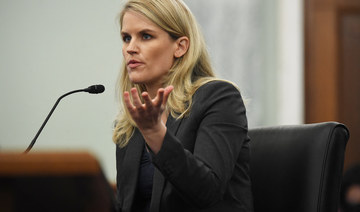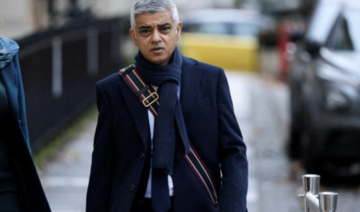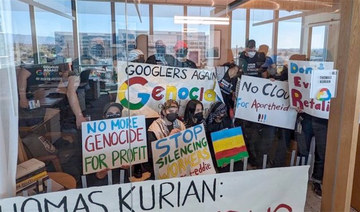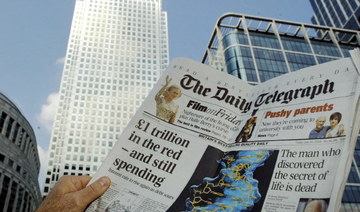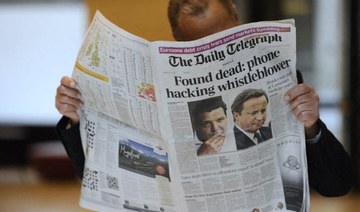Facebook blamed a “faulty configuration change for a nearly six-hour outage on Monday that prevented the company’s 3.5 billion users from accessing its social media and messaging services such as WhatsApp, Instagram and Messenger.
The company in a late Monday blog post did not specify who executed the configuration change and whether it was planned.
Several Facebook employees who declined to be named had told Reuters earlier that they believed that the outage was caused by an internal mistake in how Internet traffic is routed to its systems.
The failures of internal communication tools and other resources that depend on that same network in order to work compounded the error, the employees said. Security experts have said an inadvertent mistake or sabotage by an insider were both plausible.
“We want to make clear at this time we believe the root cause of this outage was a faulty configuration change,” Facebook said in the blog.
The Facebook outage is the largest ever tracked by web monitoring group Downdetector.
The outage was the second blow to the social media giant in as many days after a whistleblower on Sunday accused the company of repeatedly prioritizing profit over clamping down on hate speech and misinformation.
As the world flocked to competing apps such as Twitter and TikTok, shares of Facebook fell 4.9 percent, their biggest daily drop since last November, amid a broader selloff in technology stocks on Monday. Shares rose about half a percent in after-hours trade following resumption of service.
“To every small and large business, family, and individual who depends on us, I’m sorry,” Facebook Chief Technology Officer Mike Schroepfer tweeted, adding that it “may take some time to get to 100 percent.”
“Facebook basically locked its keys in its car,” tweeted Jonathan Zittrain, director of Harvard’s Berkman Klein Center for Internet & Society.
Twitter on Monday reported higher-than-normal usage, which led to some issues in people accessing posts and direct messages.
In one of the day’s most popular tweets, video streaming company Netflix shared a meme from its new hit show “Squid Game” captioned “When Instagram & Facebook are down,” that showed a person labeled “Twitter” holding up a character on the verge of falling labeled “everyone.”
Inside a Facebook group for ad buyers, one member wisecracked after service returned that “lots of people searched today ‘how to run Google ads for clients.’“
Facebook, which is the world’s largest seller of online ads after Google, was losing about $545,000 in US ad revenue per hour during the outage, according to estimates from ad measurement firm Standard Media Index.
Past downtime at Internet companies has had little long-term affect on their revenue growth, however.
Facebook’s services, including consumer apps such as Instagram, workplace tools it sells to businesses and internal programs, went dark noon Eastern time (1600 GMT). Access started to return around 5:45 p.m. ET.
Soon after the outage started, Facebook acknowledged users were having trouble accessing its apps but did not provide any specifics about the nature of the problem or say how many users were affected.
The error message on Facebook’s webpage suggested an error in the Domain Name System (DNS), which allows web addresses to take users to their destinations. A similar outage at cloud company Akamai Technologies Inc. took down multiple websites in July.
On Sunday, Frances Haugen, who worked as a product manager on the civic misinformation team at Facebook, revealed that she was the whistleblower who provided documents underpinning a recent Wall Street Journal investigation and a US Senate hearing last week on Instagram’s harm to teen girls.
Haugen was due to urge the same Senate subcommittee on Tuesday to regulate the company, which she plans to liken to tobacco companies that for decades denied that smoking damaged health, according to prepared testimony seen by Reuters.
Facebook blames ‘faulty configuration change’ for nearly six-hour outage
https://arab.news/grby3
Facebook blames ‘faulty configuration change’ for nearly six-hour outage
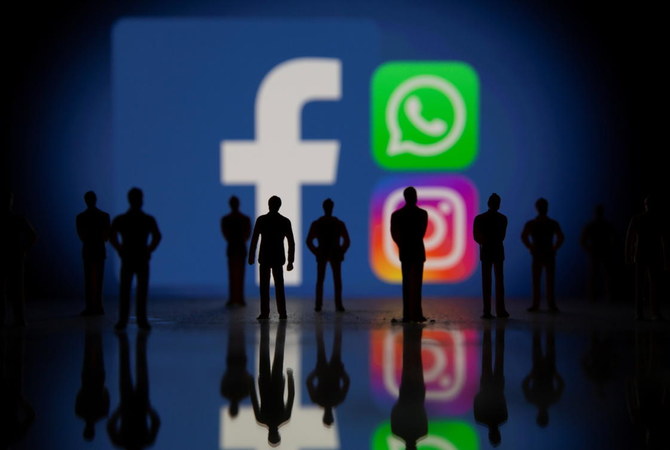
- Facebook outage was the largest ever tracked by web monitoring group Downdetector
London mayoral candidate under scrutiny for joining Islamophobic Facebook group
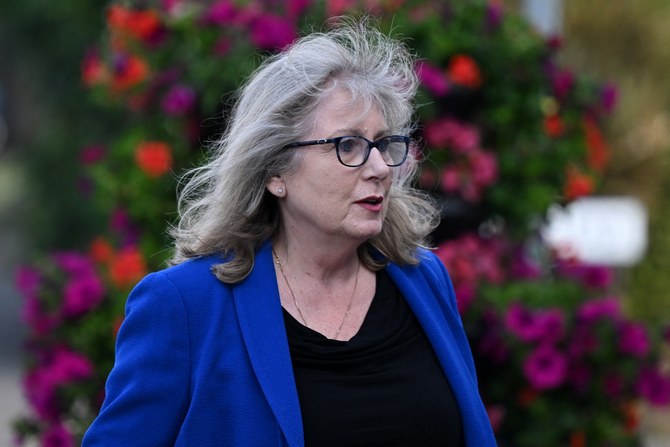
- Conservative candidate Susan Hall has refused to leave groups containing Islamophobic content, instead joining a new one
- Campaigner criticizes move as ‘last-ditch attempt’ to win votes as London prepares to choose new mayor
LONDON: The London mayoral candidate for the Conservative Party has come under scrutiny for her involvement in Facebook groups known for hosting Islamophobic content.
A joint investigation by Greenpeace-funded outlet Unearthed and The Guardian revealed that Susan Hall was a member of at least six private Facebook groups containing Islamophobic hate speech and abusive remarks directed at her opponent, Sadiq Khan.
The exposé revealed that the groups, presented as local grassroots campaigns against London’s clean air policies, are run by Conservative Party operatives including staff and activists.
Despite public exposure, Hall has declined to exit any of these Facebook groups and instead joined another one on Tuesday, according to Unearthed.
Khan told The Guardian these revelations could have an impact on the safety of his family and staff and has urged police to take action.
Reporters who infiltrated the 36-group network uncovered numerous Islamophobic and racist posts, including derogatory remarks about Khan, labeling him a “terrorist sympathizer” and a “khaki punt.” Some commenters even expressed willingness to pay for harm to be inflicted on him.
Alongside posts inciting vandalism, the investigation identified at least one YouTube video alleging that “Islamists” were “taking over Britain.”
While Conservative staff or politicians did not appear to directly engage with these racist posts, a party spokesperson unequivocally condemned posts in the groups.
However, Ami McCarthy, a political campaigner at Greenpeace UK, criticized Hall’s decision to join another group as a “last-ditch attempt to boost her ratings,” arguing that a “respectable politician would have issued an apology and left the Facebook groups” after the exposure of racism, Islamophobia, and posts inciting criminal damage.
Londoners will cast their votes for the new mayor on Thursday, with current mayor Khan leading in the polls, according to YouGov.
Hall has previously faced similar controversies related to Islamophobia. In February, she was called upon to apologize by Khan’s Labour party after suggesting that Jewish Londoners were “frightened” of Khan and retweeting a post from a far-right figure calling Khan the “mayor of Londonistan.”
Last November, Secretary-General of the Muslim Council of Britain Zara Mohammed denounced Hall’s candidacy as “unacceptable,” highlighting the persistent nature of Islamophobia within the Conservative Party and its divisive impact on communities.
Company on track ‘to build future of social media’: Million CEO

- Julien Hawari says app allows more pay, engagement, control
- App was launched in Mideast, North Africa region in February
LONDON: Julien Hawari, CEO of the emerging social media platform Million, is promising to build “the future” of the sector.
Interviewed recently during the World Economic Forum’s special meeting in Riyadh, Hawari said: “Today, if you look at legacy social media (Instagram, TikTok, X), content creators are not really making money on social media. To make money, they need a third-party relation, which is the sponsor, the advertiser.
“The problem with this model is that the moment you open the door to someone to pay you, you allow this person to impose their narrative. So you’re not doing your narrative, you’re doing the narrative of the brand.”
Hawari, who promises to build “the future of social media,” said Million’s subscription model enables creators to monetize various forms of content, including pay-per-view, live streaming and e-commerce, all within the platform itself.
Million, a UAE-based startup launched in February across the Middle East and North Africa region, aims to empower content creators by giving them greater control and facilitate direct engagement with their audiences.
Hawari said he is developing a platform where users do not “lose their authenticity with their fans and audience base” and where creators can earn a larger portion of the revenue generated.
“We have an engagement-to-earn model. The more time they (creators) spend on the platform, the more money they will get. Seventy percent of advertisement revenue that comes to the platform is redistributed to the users,” Hawari said.
He added that creators can also charge their audiences a monthly subscription fee, similar to existing exclusive content platforms like Patreon.
Million is currently open to all types of content creators, including those in food, fashion and sports. However, creators must apply and undergo a review process before being invited onto the platform.
Platform regulation, including creator vetting and content monitoring, is a significant aspect of Million.
“We’re extremely sensitive to our culture, our situation in this part of the world. So we use technology … to ensure that content is within the norm of the region,” Hawari explained.
He said Million seeks to capitalize on an industry projected to grow significantly over the next few years, with the content-creator economy estimated to surge from $100 billion in 2023 to $480 billion by 2027.
“(Million) is really the first (app) of its kind. And the growth and the potential that this app has is way beyond only this part of the world,” Hawari said.
“Every day we get more and more creators that are more and more starting to learn and understand how they’re going to use this platform to make a living because at the end of the day, it’s their image, it’s their business, it’s their rules. So they decide what they want to sell (and) at what price they want to sell it.”
Al Habtoor Group to launch new Beirut-based TV channel in effort to shake up local media sector

- New channel to create 300 jobs, create new studio city, group says
LONDON: UAE-based conglomerate Al Habtoor Group said Tuesday it will open its new TV channel in Beirut in an effort to shake up the Lebanese media landscape.
In a statement revealing new details about the group’s first foray into broadcasting, the Emirati channel said it “promises to offer extensive job opportunities and serve as a beacon of positivity in the media landscape.”
The channel will initially create about 300 jobs in fields including journalism, production and art, with additional jobs expected to be added as the project expands.
“We chose Lebanon specifically as the headquarters for our new television channel, aiming to create job opportunities for the Lebanese people, especially the youth, and to contribute to enhancing the economic and social conditions of our people in Lebanon,” explained Khalaf Ahmad Al Habtoor, founding chairman of Al Habtoor Group, on X.
Al Habtoor revealed that discussions were held with Lebanese Prime Minister Najib Mikati, who pledged to provide support and facilitation for the project.
اخترنا #لبنان بالتحديد دوناً عن غيره من الدول كمقر لقناتنا التلفزيونية الجديدة، بهدف خلق فرص عمل للشعب اللبناني وتشغيل الشباب والشابات، والمساهمة في تعزيز الظروف الاقتصادية والاجتماعية لأهلنا في لبنان. وهذا واجبي تجاه أهلي هناك، حتى إن لم أحقق أرباحاً أو استفادة مالية مجزية.… https://t.co/l4IpBFRgiN
— Khalaf Ahmad Al Habtoor (@KhalafAlHabtoor) May 1, 2024
The company also unveiled plans for a new 100,000-square-meter studio city, aimed at establishing a vibrant hub for film and TV production.
In April, Al Habtoor Group announced its entry into the broadcasting industry with the launch of a new television channel dedicated to “spreading positivity.”
According to the chairman, the new channel will focus on “highlighting successes and good news around the world” to ultimately make people “happier and more productive.”
Operating in the UAE and international markets, Al Habtoor has a presence across various cities around the world, including London, Vienna, Budapest, Beirut, and Springfield in the state of Illinois, US.
It has businesses in multiple sectors including hospitality, automotive, real estate, education, insurance, and publishing.
Set to launch later this year, the new venture is more than just broadcasting, Al Habtoor said.
“Our commitment is not only to establish a channel but also to foster a thriving media environment for professionals,” said the Lebanese entrepreneur.
“We are dedicated to empowering the local workforce and contributing positively to Lebanon’s economic revival.”
Ex-Google workers say firings for protesting Israel contract were illegal

- The group filed a complaint with a US labor board
- Google fired about 50 employees protesting agaist the Project Nimbus, a $1.2 billion contract with Israeli government
LONDON: A group of workers at Alphabet Inc’s Google have filed a complaint with a US labor board claiming the tech company unlawfully fired about 50 employees for protesting its cloud contract with the Israeli government.
The single-page complaint filed late Monday with the US National Labor Relations Board (NLRB) alleges that by firing the workers, Google interfered with their rights under US labor law to advocate for better working conditions.
Google this month said it had fired 28 employees who disrupted work at unspecified office locations while protesting Project Nimbus, a $1.2 billion contract jointly awarded to Google and Amazon.com to supply the Israeli government with cloud services. The company last week said that about 20 more workers had been fired for protesting the contract while in the office.
In a statement on Tuesday, Google said the workers’ conduct was “completely unacceptable” and made other employees feel threatened and unsafe.
“We carefully confirmed and reconfirmed that every single person whose employment was terminated was directly and definitively involved in disruption inside our buildings,” the company said.
The workers claim the project supports Israel’s development of military tools. Google has said the Nimbus contract “is not directed at highly sensitive, classified, or military workloads relevant to weapons or intelligence services.”
Zelda Montes, a former Google employee who was arrested during a protest of Project Nimbus, said Google fired workers to suppress organizing and send a message to its workforce that dissent would not be tolerated.
“Google is attempting to instill fear in employees,” Montes said in a statement provided by No Tech For Apartheid, an organizing group affiliated with some of the fired workers.
The workers in the NLRB complaint are seeking to be reinstated to their jobs with back pay and a statement from Google that it will not violate workers’ rights to organize.
The NLRB general counsel, which acts as a prosecutor, reviews complaints and attempts to settle claims it finds to have merit. If that fails, the general counsel can pursue cases before administrative judges and a five-member board appointed by the US president.
RedBird IMI withdraws from Telegraph deal, to sell UK newspaper

- Abu Dhabi-backed investor group to sell media outlet following government ban on foreign entities owning national newspapers
- RedBird IMI says its focus is on securing the best price for the titles, but experts fear the asset could fecth a lower price than what was originally paid
LONDON: Abu Dhabi-backed RedBird IMI on Tuesday said it would sell the Telegraph after it scrapped its acquisition of the right-leaning newspaper group because government intervention meant the deal was “no longer feasible.”
RedBird IMI effectively took control of the Telegraph and the Spectator magazine in December when it repaid a debt owed by then-owner the Barclay family to Lloyds Bank, including a 600 million pound ($753 million) loan against the titles.
But the acquisition, which already faced a lengthy regulatory inquiry, was dealt a blow last month when Britain said it would stop foreign governments owning newspapers.
“RedBird IMI has today confirmed that it intends to withdraw from its proposed acquisition of the Telegraph Media Group and proceed with a sale,” a RedBird IMI spokesperson said.
“We have held constructive conversations with the government about ensuring a smooth and orderly sale for both titles.”
RedBird IMI, led by former CNN executive Jeff Zucker, is backed by Mansour bin Zayed Al Nahyan, a member of Abu Dhabi’s ruling family and the owner of Manchester City soccer club.
The government issued a notice in December stopping RedBird IMI transferring ownership of the newspaper or changing its management and board while it investigated the deal.
Culture Secretary Lucy Frazer said on Tuesday she would now allow RedBird IMI to conduct an orderly sale of the titles after it had signalled its intention to withdraw.
“Throughout this process I have raised concerns about the potential impact of this deal on free expression and accurate presentation of news, and I took steps to ensure that media freedom was protected while there was an investigation into those concerns,” she said.
RedBird IMI said its focus was on securing the best price for the titles, which are close to the ruling Conservatives.
Parties previously interested in the assets include hedge fund boss Paul Marshall, Daily Mail owner DMGT as well as private equity buyers.



